We have a surfeit of managers in Canadian Healthcare. Every day I wake up there are new managers, multiplying like dandelions on a spring lawn. In fact, here in Canada we have 10 times as many healthcare managers per capita as does Germany – a country with a less expensive and more functional medical system. Our healthcare system – and thus our patients – are literally being managed to death.
But most of these managers don’t actually “manage” anything. They are better thought of as functionaries, or in Soviet terms “apparatchiks”. Their role is to disseminate memos and ensure that rules and regulations are being followed. Any request for change has to go up the chain of command to someone who is actually allowed to “manage” that particular issue. Often it is hard to identify this person. If there is a desk that the buck stops on, I’ll be damned if I can ever find it. I did a master’s degree in nuclear physics, and found my courses then a lot more simple than our organization’s management flow-chart.

New rules and “Required Operating Procedures” (ROP’s) appear frequently and unexpectedly, as if from out of the clouds. They descend on front-line staff, often much to their chagrin, and often much to the detriment of patient care. Nobody asks us if we want them, of if we think they’ll help. Nurses now spend far more time charting about a patient’s bathroom experience than actually helping the patient to and from the bathroom. A late-career nurse I work with tells me that her patient-care-to-paperwork ratio has flipped. When she started her career, 75% of her time she was with patients, and 25% was paperwork. Now, the paperwork (computer actually) is 75% and climbing. Nurses must do so because “healthcare experts” have “improved” the system.
Let me walk you through just one example of overmanagement out of many dozen I could choose: Triage.
Triage
Triage in medical care is a long-established process. The name comes from the French word “trier” meaning “to sort”, and first became applied to medicine on the battlefields of the Napoleonic wars. There was no use wasting time on those who were beyond saving, and no use rushing to those with scratches and flesh wounds. Some patients benefit from immediate care and some don’t, and sorting them out is an important first step, particularly when resources are limited.
And limited they are in Canadian ER’s of recent years. ER’s could function well if they only saw real emergencies. But heart attacks, fractured bones, or serious car accidents make up only a small fraction of what comes through a Canadian ER in a given day.
It varies, but somewhere around 2/3 of patients attend Canadian ER’s for a minor or non-acute complaint. A cough going on for a whole week. Loss of appetite or weight loss over months. Depression for years that came to a head in the last month. Prescription refills. Although these are valid reasons to see a doctor, they are not emergencies, and most patients don’t want to go to an ER to have them dealt with.
ER’s are full of non-emergency patients without family docs, without accessible family docs, and yes - some who come because the hours are convenient. Kids with snotty noses and people needing refills of blood pressure pills have to wait until there is a lull in the regular stream of strokes, heart attacks, and dislocated shoulders that make up that other third of ER traffic.
Older docs tell me there was a time in Canadian ER’s when triage wasn’t necessary, because there weren’t really waits. Can you imagine? You would walk in through the front door, a nurse would walk you into a room and hear your complaint, and then a doctor would come see you. Sounds like heaven.
Now that wait times for non-urgent problems in many ER’s regularly top 12 hours, triage has become essential.
Triage back in the day
I’m “old-ish”. OK, old. I started med school in ‘93 and did my first ER training as a 3rd year med student in late 1995. Triage happened back then, but it was informal. We relied on staff horse sense. After graduation in the ER’s where I worked patients would arrive and go to a registration window. “First contact” was with a clerk.
Sounds dangerous, right? What if someone was having a heart attack or a stroke, or bleeding out on the floor, while the oblivious clerk was asking them their health card number?
But, contrary to management-think, that didn’t really happen. Despite the prevailing idea that every aspect of healthcare has to be micro-managed by an “expert” with a degree in healthcare management, things actually worked well as I recall. Why? Our clerks were not stupid nor oblivious. If a person was clutching his chest, squirting blood from a wound, or half-conscious, the clerk immediately came and found a nurse or a doc. People with small cuts, rashes, and other minor complaints registered and waited for a nurse. It wasn’t officially called triage, but it was triage.
Fixing a problem that doesn’t exist
But then, managers decided to “improve” things. What was the impetus? Were there patients with ‘heartburn’ who registered and then sat and died of a heart attack waiting for a nurse? It must have happened, and given management a reason to pounce.
But I think that a big part of the reason for the micromanagement of triage is that “managers gonna manage”. Canadian healthcare had been getting more and more management-heavy through the 90’s and 2000’s. Those managers can’t just sit around eating donuts and showing Powerpoints at meetings ALL the time. They have to get out there and MANAGE something for us. They need to prove their value by telling front-line employees exactly how to do their jobs.
And thus “nurse-first triage” came into our ER’s. Larger ER’s were mandated to assign a nurse to be available for triage at all times. Her job is to sit in the triage cubicle and sort through the mass of humanity that pours through the door. (As an aside, it’s not a sought-after job. Some of our nurses called it “the penalty box” as it is a difficult and repetitive function, and puts that nurse constantly in contact with a waiting room full of sick, frustrated, angry people and families.)
Unintended consequences
The adage “if it ain’t broke, don’t fix it” is a way of stating the law of unintended consequences. No intervention has only the impacts that you intend, it will also have unintended ones. And so it was with formalized triage.
One immediate unintended consequence is diversion of resources. In larger hospitals with a dedicated triage nurse position, it means one less nurse doing actual patient care. In small rural hospitals without a dedicated triage nurse, the problem it creates is a little different. The nurse who is assigned to triage that day also has other duties. Previous to nurse-first triage, the clerk alerted a nurse to the patient’s presence and acuity. The nurse could attend immediately or not. Now, every time an ER patient arrives, the nurse must drop whatever she is doing and immediately triage that patient. If she is assisting her colleague to wash a frail patient, and that patient is standing up and half-dressed, he has to remain half-dressed and unwashed while she runs to triage the new patient. The new arrival she rushes to see might indeed be in the throes of a heart attack, but is much more likely to require a few stitches or assessment for a cold or the stomach flu. The task the nurse was involved with before being dragged to triage was likely more pressing.
At first, other than this diversion of resources, nurse-first triage didn’t seem too bad. Triage was a short process. Nurses would have a quick look at a patient, get a few pertinent details, and assign him a priority. The triage section of a chart began as just the top few lines and a few small spaces to write in vital signs, which were done when needed.
More = better
But managers kept “improving” triage. And in management-speak, “improving” and “expanding” are interchangeable.
“Triage” has bloated into several pages of paperwork and mandatory tick boxes, requiring somewhere from 10 to over 20 minutes of work. Vital signs are mandatory. That 15 year old with a sprained ankle from the volleyball finals? He is getting his temperature and blood pressure checked, same as the weak 82 year old with the bad heart. Nurses must now get (and confirm!) a list of medications for each patient. This is no small task, when over half of seniors are on 4 or more medications which include “a white one, a pink one, and a big one that’s on my list but I don’t take anymore”.
Over the years more and more has been added: suicide screening checklists, questions about domestic violence, exposure to COVID, influenza, and even Ebola at one point. Full histories and exams must be done – and documented. There was even a push to add drug addiction screening to triage, which would also potentially include providing and explaining Naloxone kits. The triage process is now so complex that nurses must take a number of training modules to be “certified”.
Newsflash: It’s not really helpful
In most cases the majority of the information that the triage nurse is forced to collect is irrelevant. I don’t care if someone had her gallbladder removed and takes estrogen, if all I’m doing is taking a tick out of her shoulder. And even when the information IS relevant, both myself and the nurse who cares for the patient when they finally get seen are going to ask all the same questions and do the same examination, thus making the effort of triage largely redundant.
I won’t even get into that there is now a dedicated RE-triage nurse (I’m not kidding) in many large ER’s, as well as a “Care Team Assistant” – a non-medical staff person who works in the waiting room to bring patients water, answer questions, and liaise with the nurses when necessary. Why spend money on decreasing wait times when you can instead try to make the wait more tolerable?
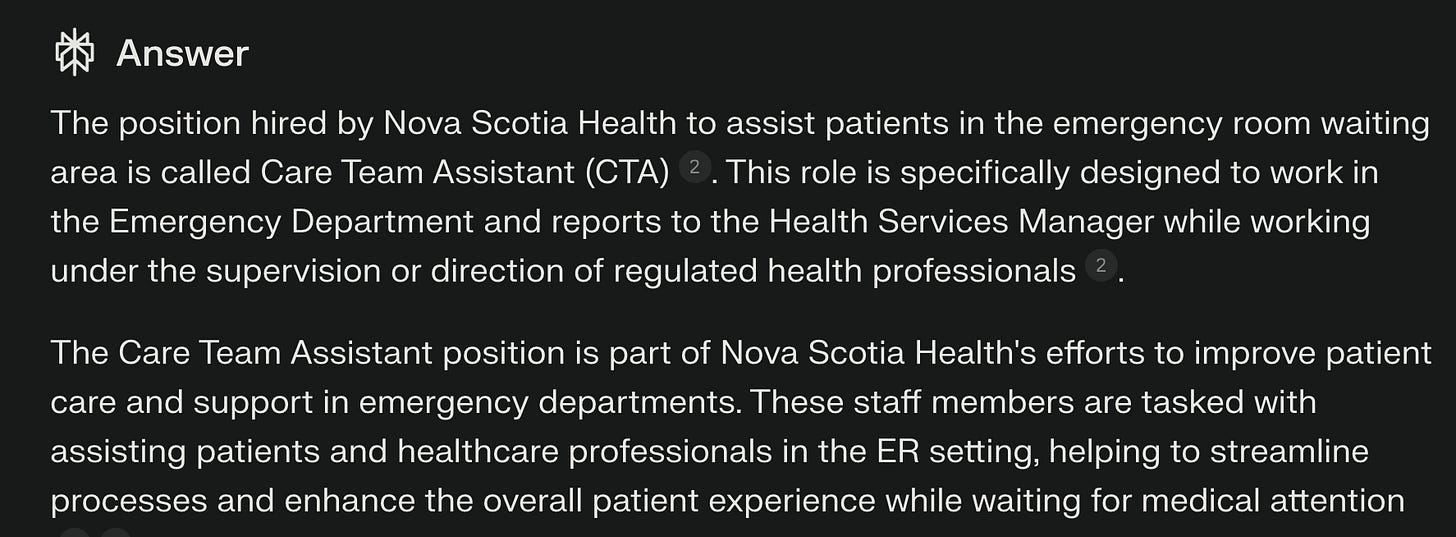
Triage has gone from sensible to senseless
It has been through a process of over-management that triage has gone from a clerk using her oculocerebral apparatus and god-given horse sense to make sure a patient who was bleeding from the eyeballs didn’t get sat in the far reaches of the waiting room, to a 15-20 minute process.
Managers I have spoken with seem aglow about our new triage processes. Data is kept on a triage nurse’s thoroughness in following protocol. Did she document vital signs? Her exam? Did she do the suicide screen? GREAT! This is all going wonderfully, according to the spreadsheets.
But what has this bloated process actually done IRL?
I’ve already described the diversion of resources it creates, a problem in both large and small ER’s.
Most concerning is that in large ER’s, triage is so complex and takes so long that there is now a wait to be triaged, thus defeating the whole purpose of directing urgent patients to immediate care. It would be ironically funny if it wasn’t so dangerous. Our local waiting room now has a whole bank of chairs that say “triage waiting area”. That chest-clutching pale guy has to have a seat while 5 other people get triaged before him. This would not have happened in the old system, where the clerk where he registered would have rushed him in after one look. On the bright side, at least he’ll die waiting in a well-managed system. The forced , formalized and fancy triage process has actually delayed first assessment after arrival.
I’ve seen this first hand
An older family member - I’ll call her Shirley - fell ill with a cough and vomiting. At her best she is frail. By the morning of day 2 of vomiting and not keeping much down she was getting weak and short of breath, and felt like she was going to pass out when trying to get up to go to the bathroom to vomit. She hadn’t urinated much in 24 hours. Even over the phone, I knew for sure she was dehydrated. I told her she needed to go to ER even though her previous experiences there were awful. She reluctantly agreed and her daughter managed to get her into the car.
They arrived to an ER waiting area that was crowded to capacity. She was very weak on her feet and needed support. Her daughter asked where triage was. “You’re in the line” said the security guard. There were numerous patients, some looking fairly unwell, ahead of her, along with family members.
“Is there somewhere she can sit? She’s pretty weak.”. “No, all the chairs are full” he said.
“Do you know how long a wait it will be for triage? I don’t think she can stand up for long”. “About 2 hours last I checked” was the answer.
Shirley said “I can’t stand up that long. I’m starting to feel dizzy.” They gave up and called me on the way home. There were no other options. I told them to try some Gravol and to get as much fluid in as possible.
Late that evening, Shirley tried to get up to the bathroom and fell unconscious, fortunately onto the bed. She was SO unconscious that at first it wasn’t clear whether she was breathing. 911 was called. Paramedics inserted an IV and whisked her off to ER. This time she didn’t have to stand in a line for triage, but instead waited on a stretcher in the back hall. I suppose that’s an improvement. At least she was lying down, and had an IV fluids already started. She spent over a week in hospital, having been severely dehydrated on arrival.
There are so many stories
I could tell you many more stories that are similar. Many have less happy endings. Many patients leave when they find out that the wait for TRIAGE is an hour or more, let alone the wait to see a doc. Some refuse to go to ER at all, knowing that this is how things are. I know patients who have died as a result of leaving before being triaged, or refusing to go at all. “Died in waiting room” stats are artificially low, because a lot of people didn’t bother coming to ER at all, or saw the crowd and gave up before registering.
And in my experience, despite the creation of this complex and formalized triage process, I see just as many or more errors. There are as many or more people who should have been prioritized and weren’t, sometimes with bad results. The system wasn’t perfect before nurse-first triage, but I’m unconvinced it’s any better now.
You can’t quantify common sense
The reason it’s not better is because triage is not some mechanical process that can be formalized and spreadsheeted. The best, most logical triage is just gestalt. Most of us can tell when another human being is urgently and acutely ill. It’s a common sense judgement that can be made reasonably well by anyone with an average IQ, let alone by an experienced nurse or ward clerk. Common sense can’t be bottled or quantified.
Triage made sense when staff were free to use their brains to accomplish it as they saw fit. But now that it has become a long-on-paperwork short-on-logic exercise in pleasing box-ticking bureaucrats, it has made our ER’s less efficient and more dangerous. We have managed to slow down the process without improving it.
Note to managers: LEAVE WORKERS ALONE. Micromanagement kills systems. And if that system is healthcare, micromanagement kills patients.



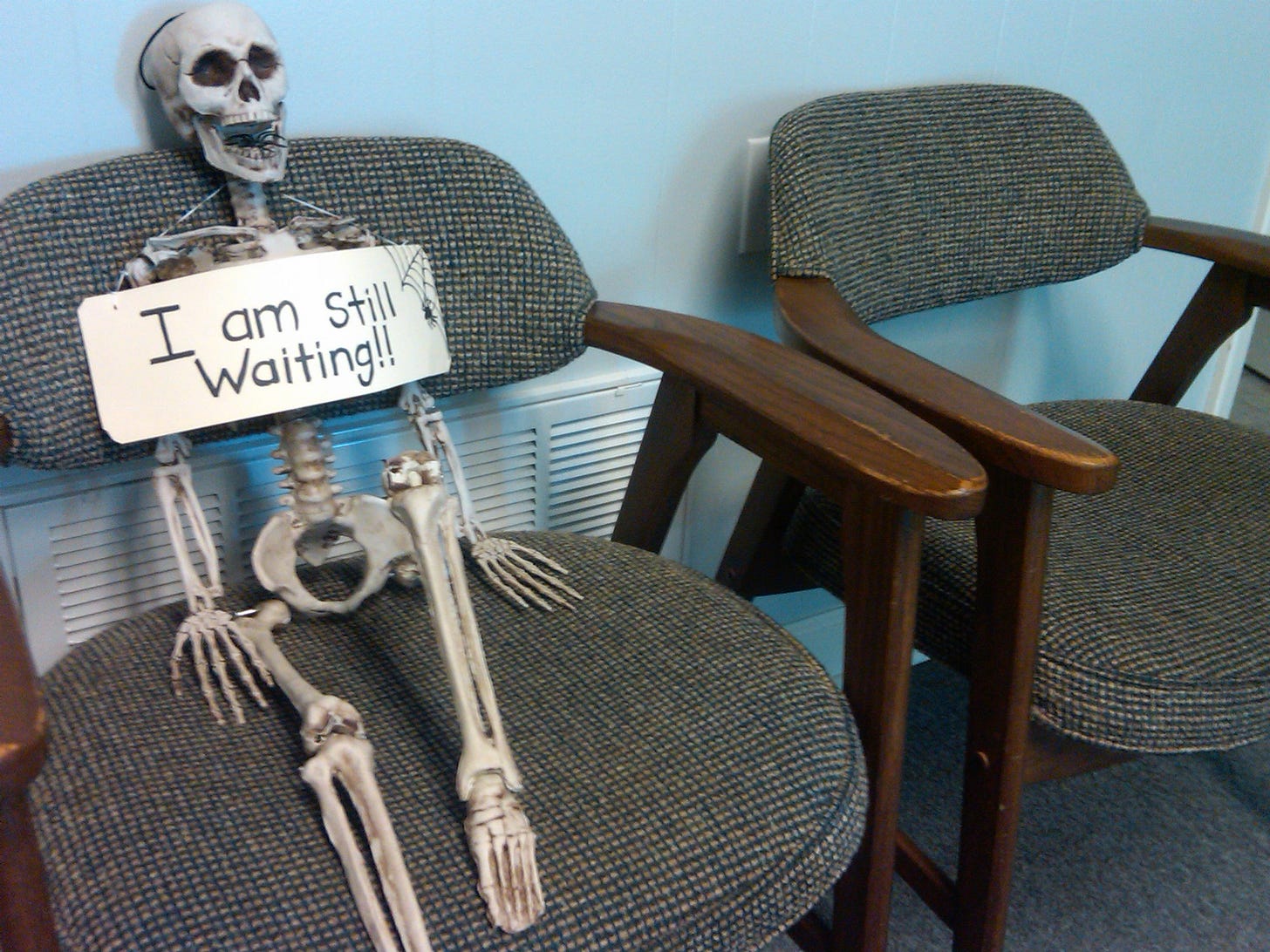

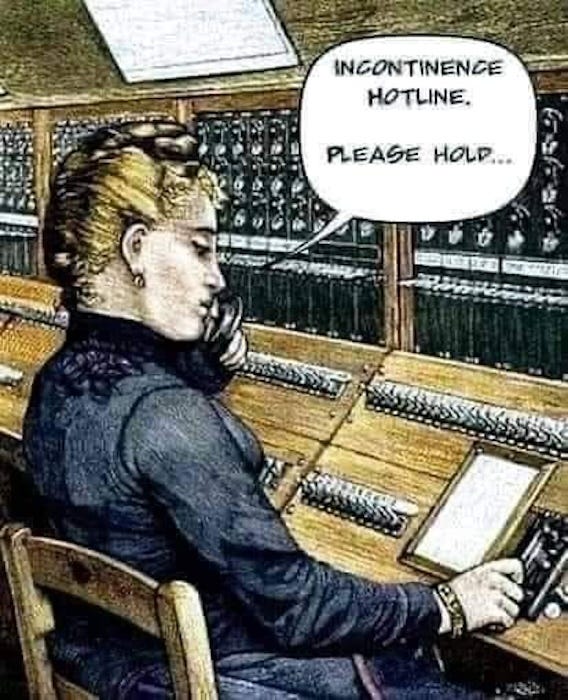

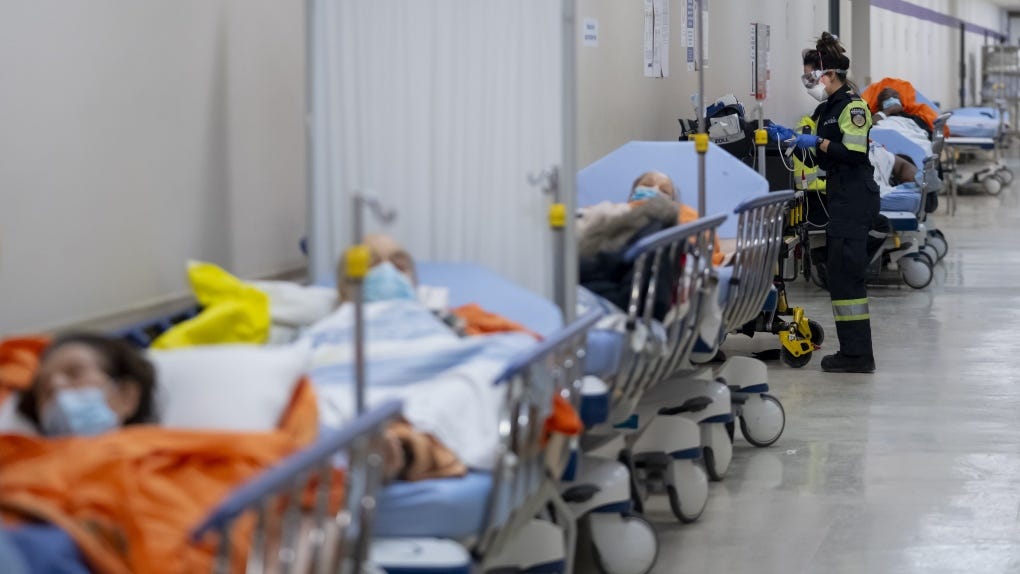

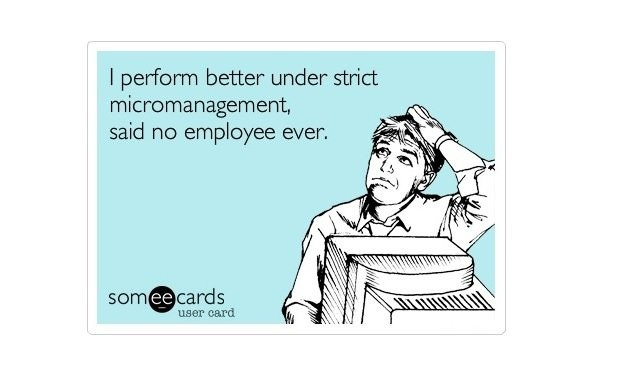
This has been *the* problem in Canadian health care as well. Too much middle management, too much teaching of "best practice" by people who couldn't hack working shift work, so did masters degrees & returned to order staff about 😠.
I'm a "retired rather than be fired" (no covid vax) RN in Ontario, Canada. The stories I could tell!! Things are, of course, way worse now. Many of the best staff quit because of vaccine mandates, and those who complied are sick all the time....☹️
Management is the slow creeping death of efficiency in any large organisation. I’ve worked in the public sector in the UK and at a university there, both organisations that exceed the magic number of 500 employees. (An organisation of 500 or more is perfectly capable of being managerially self sustaining, in that managers can find enough stuff to do to manage things internally without actually doing anything else.) I have been banging on for years about how managers destroy quality, customer service, efficiency, delivery - all the things they aim for on paper but ruin in practice. The NHS (UK’s national health service) is a bloated managerial wreck, and throwing more money at it will only make it worse, as instead of funds going to employing more nurses, doctors and other “doers”, the admin side will see to it that they siphon off such funds for their own. If ever there was a deadly virus, it is not the biological sort, but the administrative-managerial one.